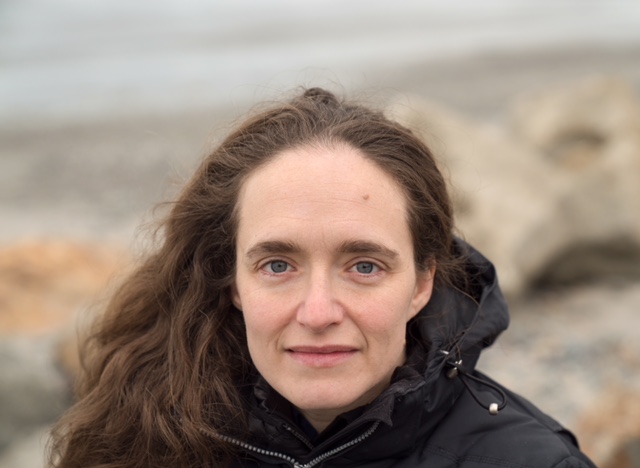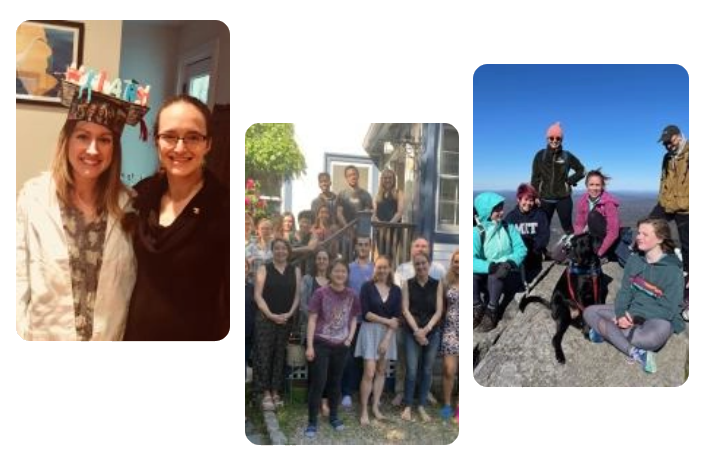MIT Brain and Cognitive Sciences
Rebecca Saxe studies human social cognition, using a combination of behavioral testing and brain imaging technologies. She is best known for her discovery of a brain region that is specialized for “theory of mind” tasks that involve understanding the mental states of other people.
Saxe continues to study this region and its role in social cognition. She has shown that it is involved when we make moral judgements about other people, and she is also exploring its possible role in autism, a condition in which the ability to understand other people’s beliefs and motivations is often impaired.
Another theme of Saxe’s research is the development of the human brain during early infancy. She has developed new methods for scanning young babies, which she is using to study the emergence of specialized visual areas that respond selectively to different categories of stimuli, including faces and scenes. Her work has revealed that the large-scale organization of the infant visual system is surprisingly similar to that of adults. She is currently examining how experience interacts with the intrinsic wiring of the newborn brain to shape its subsequent development.
Biography:
Rebecca Saxe is the John W. Jarve (1978) Professor of Cognitive Neuroscience and the Associate Dean of Science at MIT. She studies the development and neural basis of human cognition, focusing on social cognition. Saxe obtained her Ph.D. from MIT and was a Harvard Junior Fellow before joining the MIT faculty in 2006. She has received the Troland Award from the National Academy of Sciences, a Guggenheim fellowship, the MIT Committed to Caring Award for graduate mentorship and is a member of American Academy of Arts and Science.
Unofficial Biography:
I aspire to use cognitive neuroscience to understand human thought and motivation, and to be humble, uncompromising, and constructive. Serious inquiry into human nature is not a luxury. No one should be excluded from it by their race, gender, or other accidents of birth.
I am Canadian, born and raised in Toronto. By chance, at 17 years old, I discovered that Oxford University offered a degree in Psychology, Philosophy and Physiology. I had implicitly believed that Oxford was historical or fictional or both, not a place real live girls could go. I went. I found profound personal significance in philosophical questions, and I loved the craft of experimental design and data analysis in experimental psychology.
The luckiest thing in my career has been finding incredible mentors, three brilliant and fearless women: Kia Nobre (undergrad), Nancy Kanwisher (grad), and Susan Carey (postdoc).
In addition to excellence in research, I deeply value my roles as a teacher and a mentor. I want to foment chances for passionate people to participate in serious intellectual conversations, with high standards and high stakes and no holds barred. I believe such conversations are fundamentally what a university is for.
Personally, I love reading books. I read at least a book a week, fiction, poetry and non-fiction. Some of my (many!) favourite novels are “A Gentleman in Moscow” by Amor Towles, “Death comes for the archbishop” by Willa Cather, “Ocean Sea” by Alessandro Barricco, “Going Postal” by Terry Pratchett, and “The Song of Achilles” by Madeline Miller. Some of my (many!) favourite non-fiction books are “Endurance” by Alfred Lansing, “Do no harm” by Henry Marsh, “Why Fish Don’t Exist” by Lulu Miller, “Born a crime” by Trevor Noah, “Wilding” by Isabella Tree, “In the land of invented languages” by Arika Okrent, and “Hanging on to the Edges” by Daniel Nettle.
I have two young kids, both of whom attend Spanish immersion public school in Cambridge.


